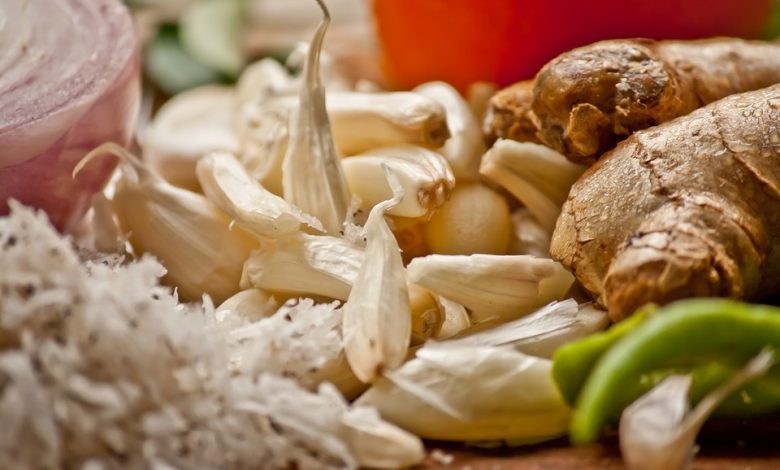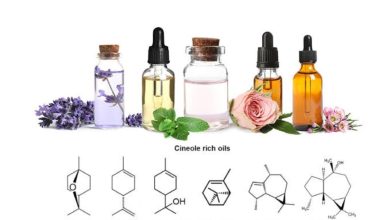Best 20 Herbal Supplements For Headaches Treatment

Headaches have been documented throughout history and have been described in various ancient texts. The earliest recorded description of a headache dates back to ancient Egypt, where papyri from around 1500 BCE describe the use of herbal remedies for treating headaches. Ancient Greeks and Romans also recognized headaches as a common ailment and used various herbal remedies to treat them.
Throughout the centuries, physicians and healers have described different types of headaches, such as tension headaches, migraines, and cluster headaches. In the early 20th century, the first classification system for headaches was developed, which divided headaches into primary and secondary types.
In modern times, headaches remain a common ailment, with millions of people experiencing headaches every year. Advances in medicine and technology have allowed for more effective treatments for headaches, and research continues to help us better understand the causes and mechanisms of different types of headaches. Today, healthcare providers use a variety of approaches to diagnose and treat headaches, including lifestyle modifications, medication, and alternative therapies.
Are herbs still useful in headaches treatment?
Yes, herbs can still be useful in treating headaches, particularly for those who prefer natural remedies or are looking for alternatives to medication. Some herbs have anti-inflammatory, pain-relieving, and calming properties that can help alleviate headaches.
However, you should note that while herbs can be helpful in treating headaches, they should be used with caution and under the guidance of a healthcare provider. Some herbs may interact with medications or have side effects, and some may not be safe for certain individuals, such as pregnant or breastfeeding women. It’s always a good idea to talk to your healthcare provider before using herbs or other natural remedies for headaches.
20 Best Herbal Supplements For Headaches Treatment
Here are 20 herbs that have been traditionally used for headache treatment:
1. Feverfew: Feverfew is a flowering plant that has been used for centuries to prevent and treat migraines. The active compound in feverfew, parthenolide, is believed to help reduce inflammation and prevent blood vessel constriction, both of which are thought to contribute to migraines.
2. Butterbur: Butterbur is a plant that has been used to prevent migraines and has been shown to be effective in clinical trials. The active compounds in butterbur, petasin and isopetasin, are thought to help reduce inflammation and prevent blood vessel constriction.
3. Ginger: Ginger is a root that has been used for thousands of years for its medicinal properties. It has anti-inflammatory and pain-relieving effects that may help relieve tension headaches and reduce inflammation.
4. Peppermint: Peppermint is a plant that has been traditionally used to relieve tension headaches and promote relaxation. Its active compound, menthol, has a cooling effect that can help reduce pain and tension.
5. Lavender: Lavender is an herb that is known for its calming and relaxing effects. It is believed to help reduce tension headaches by promoting relaxation and reducing stress.
6. Willow bark: Willow bark is an herb that has been used for centuries for its anti-inflammatory and pain-relieving properties. It contains salicin, which is similar to aspirin and can help relieve pain and inflammation.
7. Valerian root: Valerian root is an herb that has been used for its calming and muscle-relaxing effects. It may be helpful in reducing tension headaches by promoting relaxation and reducing stress.
8. Passionflower: Passionflower is an herb that is known for its calming and sedative effects. It may be helpful in reducing tension headaches by promoting relaxation and reducing stress.
9. Ginkgo biloba: Ginkgo biloba is an herb that is believed to improve blood flow and reduce inflammation. It may be helpful in reducing tension headaches by improving circulation and reducing inflammation.
10. Eucalyptus: Eucalyptus is an herb that has been traditionally used to relieve tension headaches and promote relaxation. Its active compound, eucalyptol, has a cooling and soothing effect that can help reduce pain and tension.
11. Lemon balm: Lemon balm is an herb that is known for its calming and stress-reducing effects. It may be helpful in reducing tension headaches by promoting relaxation and reducing stress.
12. Rosemary: Rosemary is an herb that has been used for centuries for its medicinal properties. It has anti-inflammatory and pain-relieving effects that may help relieve tension headaches and reduce inflammation.
13. Turmeric: Turmeric is an herb that has been traditionally used for its anti-inflammatory and pain-relieving properties. It contains curcumin, which has been shown to have anti-inflammatory effects and may help reduce pain and inflammation.
14. White willow: White willow is an herb that has been used for centuries for its anti-inflammatory and pain-relieving properties. It contains salicin, which is similar to aspirin and can help relieve pain and inflammation.
15. Jamaican dogwood: Jamaican dogwood is an herb that has been traditionally used for its pain-relieving and sedative effects. It may be helpful in reducing tension headaches by promoting relaxation and reducing stress.
16. Skullcap: Skullcap is an herb that is known for its calming and anxiety-reducing effects. It may be helpful in reducing tension headaches by promoting relaxation and reducing stress.
17. Meadowsweet: Meadowsweet is an herb that has been used for centuries for its anti-inflammatory and pain-relieving properties. It contains salicylates, which are similar to aspirin and can help relieve pain and inflammation.
18. St. John’s Wort: St. John’s Wort is an herb that is known for its antidepressant and anti-inflammatory effects. It may be helpful in reducing tension headaches by reducing inflammation and promoting relaxation.
19. Chamomile: Chamomile is an herb that is known for its calming and anti-inflammatory effects. It may be helpful in reducing tension headaches by reducing inflammation and promoting relaxation.
20. Catnip: Catnip is an herb that is known for its calming and sedative effects. It may be helpful in reducing tension headaches by promoting relaxation and reducing stress.
It’s important to note that while herbs can be helpful in relieving headaches, it’s always best to consult with a healthcare professional before using any herbal remedies, especially if you have any underlying health conditions or are taking any medications. Some herbs can interact with certain medications, and others may not be safe for certain populations, such as pregnant or breastfeeding women. Additionally, some herbs may have side effects or cause allergic reactions in some individuals.
Chinese Herbs For Headaches
Traditional Chinese Medicine (TCM) has a long history of using herbs for the treatment of headaches. Here are some examples of Chinese herbs that may be used for headaches:
1. Chuan Xiong (Ligusticum wallichii): Chuan Xiong is a common Chinese herb used to relieve headache pain. It is believed to work by promoting blood circulation and reducing inflammation.
2. Bai Zhi (Angelica dahurica): Bai Zhi is another Chinese herb that may be used to treat headaches. It is believed to work by opening up the nasal passages and reducing inflammation.
3. Gao Ben (Ligusticum chuanxiong): Gao Ben is a Chinese herb that is believed to have analgesic properties and may be used to relieve headache pain.
4. Dan Shen (Salvia miltiorrhiza): Dan Shen is a Chinese herb that is commonly used to treat cardiovascular and circulatory disorders. It may also be helpful in reducing headache pain by promoting blood flow and reducing inflammation.
5. Bai He (Lilium candidum): Bai He is a Chinese herb that may be used to relieve headaches, especially those caused by stress and tension. It is believed to work by promoting relaxation and reducing stress.
It’s important to note that TCM uses a holistic approach to treatment and considers the individual’s overall health and constitution when prescribing herbs. It’s always best to consult with a licensed TCM practitioner before using any Chinese herbs for headaches or any other health condition.
What herbs are safe for headaches in pregnancy?
It is important to note that pregnant women should always consult with their healthcare provider before taking any herbal remedies, including those for headaches. However, here are some herbs that are generally considered safe for use during pregnancy:
1. Ginger: Ginger has anti-inflammatory properties and may be helpful in relieving headaches, especially those caused by tension and sinus pressure. It is generally considered safe for use during pregnancy in moderate amounts.
2. Chamomile: Chamomile is a calming herb that may be helpful in reducing stress-related headaches. It is generally considered safe for use during pregnancy, but it’s best to consult with a healthcare provider before using it.
3. Peppermint: Peppermint is an herb that has been traditionally used to treat headaches. It works by promoting relaxation and reducing tension. It is generally considered safe for use during pregnancy in moderate amounts.
4. Lemon balm: Lemon balm is a calming herb that may be helpful in reducing stress-related headaches. It is generally considered safe for use during pregnancy, but it’s best to consult with a healthcare provider before using it.
5. Lavender: Lavender is an herb that has calming and soothing properties. It may be helpful in reducing stress-related headaches. It is generally considered safe for use during pregnancy, but it’s best to consult with a healthcare provider before using it.
Again, it’s important to consult with a healthcare provider before using any herbal remedies during pregnancy, as some herbs may have potential risks or side effects.





